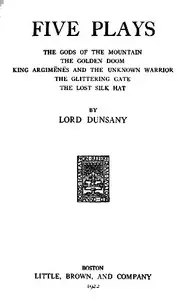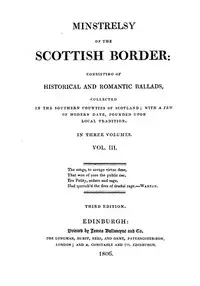"Plays of Near & Far" by Lord Dunsany is a compilation of theatrical pieces from the turn of the century, delivering a fusion of imaginative fantasy and symbolic stories. Dunsany’s distinctive style bursts forth, defined by ornate language and richly imagined worlds. These plays examine fantastical concepts, frequently brushing against mythologies, philosophical questions about existence, and the essence of authority through symbolic stories populated with vibrant characters. The collection opens with a preface where Dunsany describes his reasons for sharing the plays, even though it was traditional to wait for live performances to judge them. Dunsany illuminates the meaning behind three plays: "The Compromise of the King of the Golden Isles," "The Flight of the Queen," and "Cheezo," paving the way for considerations of destiny, choice, and moral questions, illustrated by a king confronting laws of his empire, a queen drawn to to an enchanted mountain, and with social commentary on values through Sladder, a character defined by superficial marketing and materialism.

Plays of Near & Far
By Lord Dunsany
Kings, queens, and marketers navigate destiny, choice, and morality in fantastical worlds filled with symbolic stories and rich language.
Summary
About the AuthorEdward John Moreton Drax Plunkett, 18th Baron Dunsany, commonly known as Lord Dunsany, was an Anglo-Irish writer and dramatist. He published more than 90 books during his lifetime, and his output consisted of hundreds of short stories, plays, novels, and essays; further works were published posthumously. Having gained a name in the 1910s as a great writer in the English-speaking world, he is best known today for the 1924 fantasy novel The King of Elfland's Daughter, and his first book, The Gods of Pegāna, which depicts a fictional pantheon. Many critics feel his early work laid grounds for the fantasy genre.
Edward John Moreton Drax Plunkett, 18th Baron Dunsany, commonly known as Lord Dunsany, was an Anglo-Irish writer and dramatist. He published more than 90 books during his lifetime, and his output consisted of hundreds of short stories, plays, novels, and essays; further works were published posthumously. Having gained a name in the 1910s as a great writer in the English-speaking world, he is best known today for the 1924 fantasy novel The King of Elfland's Daughter, and his first book, The Gods of Pegāna, which depicts a fictional pantheon. Many critics feel his early work laid grounds for the fantasy genre.


















